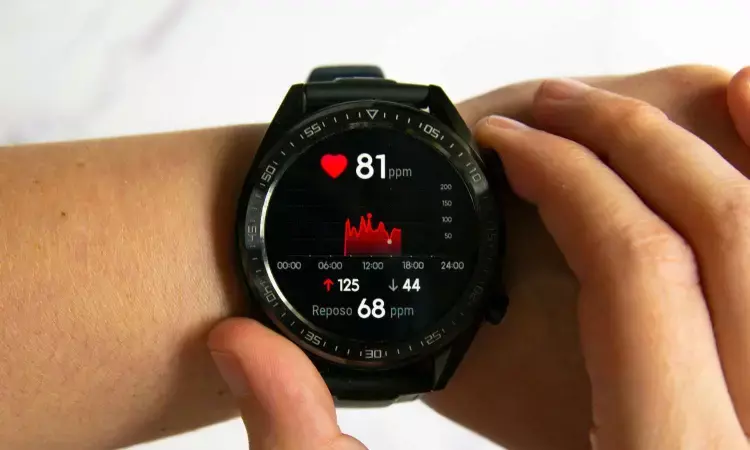- Home
- Medical news & Guidelines
- Anesthesiology
- Cardiology and CTVS
- Critical Care
- Dentistry
- Dermatology
- Diabetes and Endocrinology
- ENT
- Gastroenterology
- Medicine
- Nephrology
- Neurology
- Obstretics-Gynaecology
- Oncology
- Ophthalmology
- Orthopaedics
- Pediatrics-Neonatology
- Psychiatry
- Pulmonology
- Radiology
- Surgery
- Urology
- Laboratory Medicine
- Diet
- Nursing
- Paramedical
- Physiotherapy
- Health news
- Fact Check
- Bone Health Fact Check
- Brain Health Fact Check
- Cancer Related Fact Check
- Child Care Fact Check
- Dental and oral health fact check
- Diabetes and metabolic health fact check
- Diet and Nutrition Fact Check
- Eye and ENT Care Fact Check
- Fitness fact check
- Gut health fact check
- Heart health fact check
- Kidney health fact check
- Medical education fact check
- Men's health fact check
- Respiratory fact check
- Skin and hair care fact check
- Vaccine and Immunization fact check
- Women's health fact check
- AYUSH
- State News
- Andaman and Nicobar Islands
- Andhra Pradesh
- Arunachal Pradesh
- Assam
- Bihar
- Chandigarh
- Chattisgarh
- Dadra and Nagar Haveli
- Daman and Diu
- Delhi
- Goa
- Gujarat
- Haryana
- Himachal Pradesh
- Jammu & Kashmir
- Jharkhand
- Karnataka
- Kerala
- Ladakh
- Lakshadweep
- Madhya Pradesh
- Maharashtra
- Manipur
- Meghalaya
- Mizoram
- Nagaland
- Odisha
- Puducherry
- Punjab
- Rajasthan
- Sikkim
- Tamil Nadu
- Telangana
- Tripura
- Uttar Pradesh
- Uttrakhand
- West Bengal
- Medical Education
- Industry
Fitness trackers and smartwatches can pose severe risks in people with cardiac implants

USA: A recent study published in Heart Rhythm has reported that certain consumer electronic devices could pose serious risks to people with cardiac implantable electronic devices (CIEDs). CIEDs include implantable cardioverter defibrillators (ICDs), pacemakers, and cardiac resynchronization therapy (CRT) devices.
In recent years, wearable devices such as smartwatches, rings, and smart scales have become ubiquitous-“must-haves” for the health conscious to self-monitor heart rate, blood pressure, and other vital signs. Despite the obvious benefits, certain fitness and wellness trackers could pose serious risks in this population due to potential interference.
Investigators evaluated the functioning of CRT devices from three leading manufacturers while applying electrical current used during bioimpedance sensing. Bioimpedance sensing is a technology that emits a very small, imperceptible current of electricity (measured in microamps) into the body. The electrical current flows through the body, and the sensor measures the response to determine the person’s body composition (i.e., skeletal muscle mass or fat mass), level of stress, or vital signs, such as breathing rate.
“Bioimpedance sensing generated an electrical interference that exceeded Food and Drug Administration-accepted guidelines and interfered with proper CIED functioning,” explained lead investigator Benjamin Sanchez Terrones, PhD, Department of Electrical and Computer Engineering, University of Utah, Salt Lake City, UT, USA. He emphasized that the results, determined through careful simulations and benchtop testing, do not convey an immediate or clear risk to patients who wear the trackers. However, the different levels emitted could result in pacing interruptions or unnecessary shocks to the heart. Dr. Sanchez added, “our findings call for future clinical studies examining patients with CIEDs and wearables.”
The interaction between general electrical appliances, and more recently smartphones, with CIEDs, has been subject to study within the scientific community over the past few years. Nearly all, if not all, implantable cardiac devices already warn patients about the potential for interference with a variety of electronics due to magnetic fields – for example, carrying a mobile phone in your breast pocket near a pacemaker. The rise of wearable health tech has grown rapidly in recent years, blurring the line between medical and consumer devices. Until this study, objective evaluation for ensuring safety has not kept pace with the exciting new gadgets.
“Our research is the first to study devices that employ bioimpedance-sensing technology and discover potential interference problems with CIEDs such as CRT devices. We need to test across a broader cohort of devices and in patients with these devices. Collaborative investigation between researchers and industry would help keep patients safe,” noted Dr. Sanchez Terrones.
Reference:
Gia-Bao Ha, Benjamin A. Steinberg, Roger Freedman, Antoni Bayés-Genís, Benjamin Sanchez, Published:February 21, 2023 DOI:https://doi.org/10.1016/j.hrthm.2022.11.026
Dr Kamal Kant Kohli-MBBS, DTCD- a chest specialist with more than 30 years of practice and a flair for writing clinical articles, Dr Kamal Kant Kohli joined Medical Dialogues as a Chief Editor of Medical News. Besides writing articles, as an editor, he proofreads and verifies all the medical content published on Medical Dialogues including those coming from journals, studies,medical conferences,guidelines etc. Email: drkohli@medicaldialogues.in. Contact no. 011-43720751


